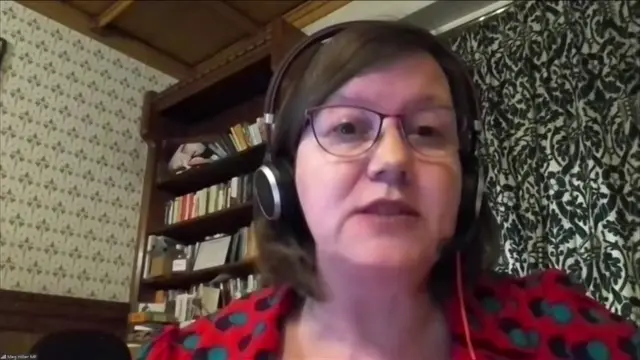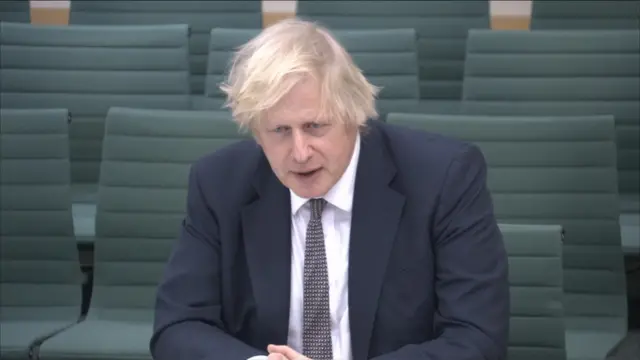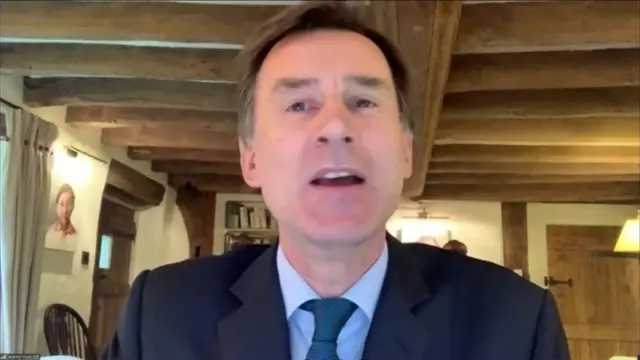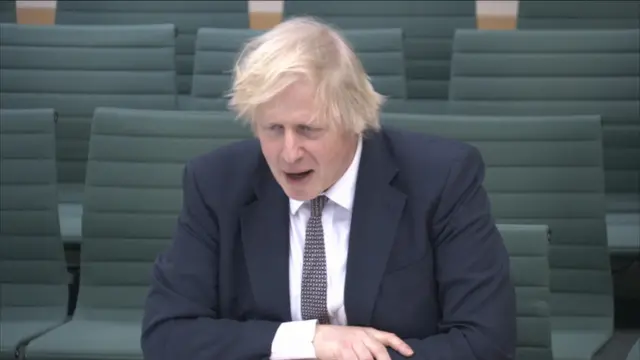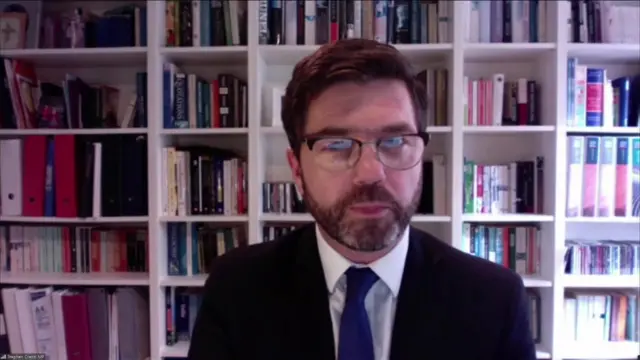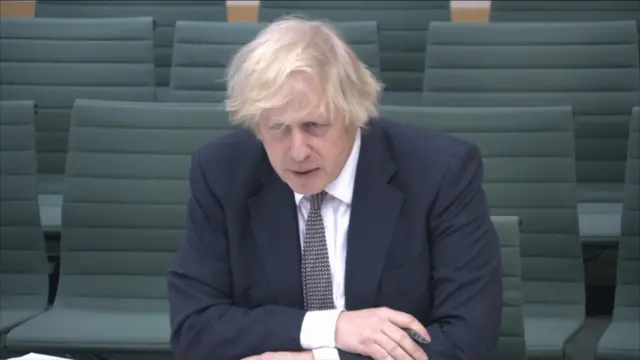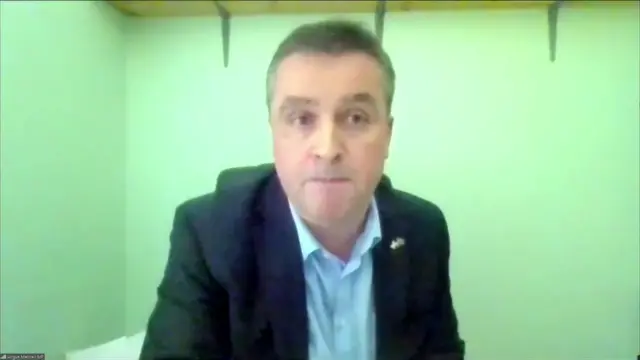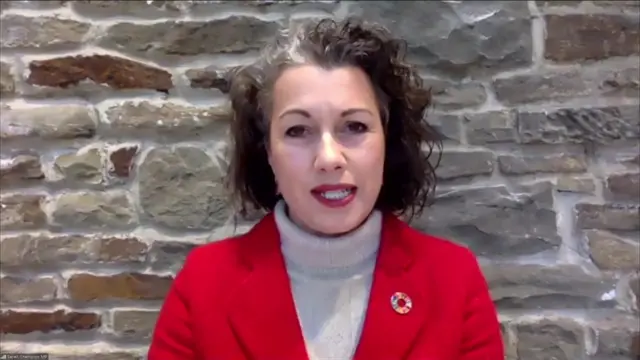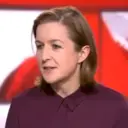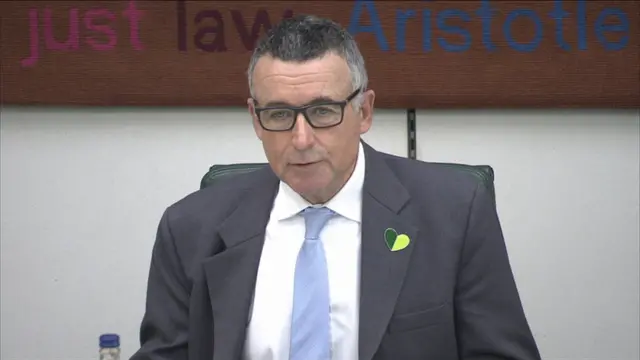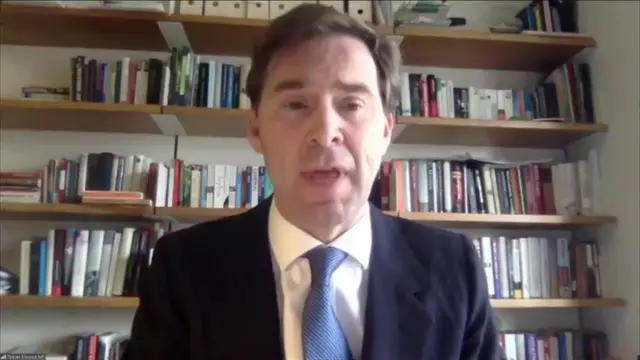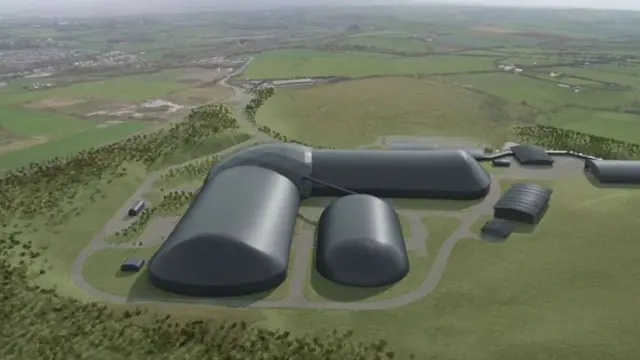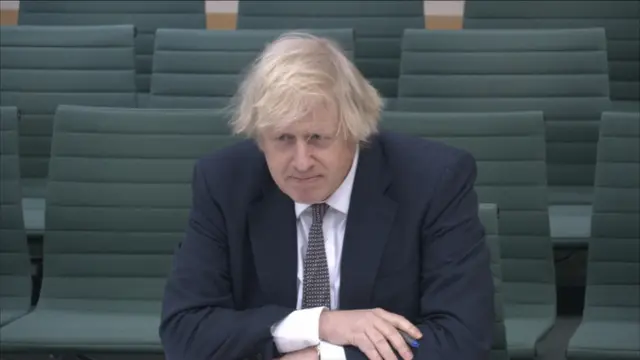Why not put France on the "red list"? asks Cooperpublished at 16:39 GMT 24 March 2021
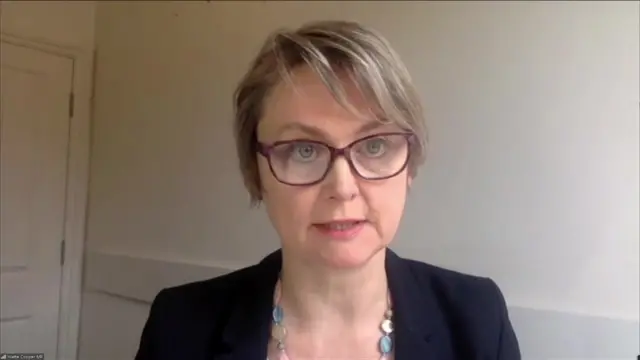 Image source, HoC
Image source, HoCThe Labour chair of the Home Affairs Committee, Yvette Cooper, sticks with what lessons if any have been learned from the handling of the pandemic. Will the PM now admit it was a mistake not to close the UK's borders with France last March, she asks
Boris Johnson says the UK has "very tough measures against people bringing the virus in to the country". But Ms Cooper says he is not answering the questions about the situation last year at the start of the pandemic.
She asks why doesn't the PM now put France on the "red list", external given the spread of new variants of the virus in the country.
Mr Johnson says cases of the new variants are not rising in France. The numbers are "low and stable" he argues.
He explains that putting a country on the "red list" has consequences for the supply of medicines and foods to the UK but says "we will have to look at tougher measures" if the circumstances change.
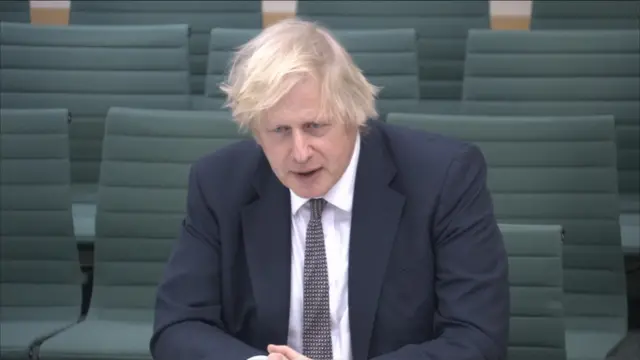 Image source, HoC
Image source, HoC